
Evening of Encouragement for HE Mothers 2025
Saturday the 24th of May was our second annual evening event for home educators. It was a wonderful time of encouraging and supporting one another.
Below is a list of some of the curriculum and resources that were available to look through. I have tried to include a short summary of each one, along with some of the wisdom shared by those who are already putting them to use in their homes.
I’ve also included a transcript of the bible study.
Curriculum:
ACE
https://www.christian.education/ace
This curriculum covers all the core subjects from K-12. It offers its own certification on completion, known as an International Certificate of Christian Education, which is recognised as equivalent to GCSEs (general certificate) or A-Level (advanced certificate) by many institutions. Children work through PACEs (workbooks) mostly independently, marking them themselves too, with help from parents where needed. The grammar is particularly rigorous, and the PACEs have a focus on character development.
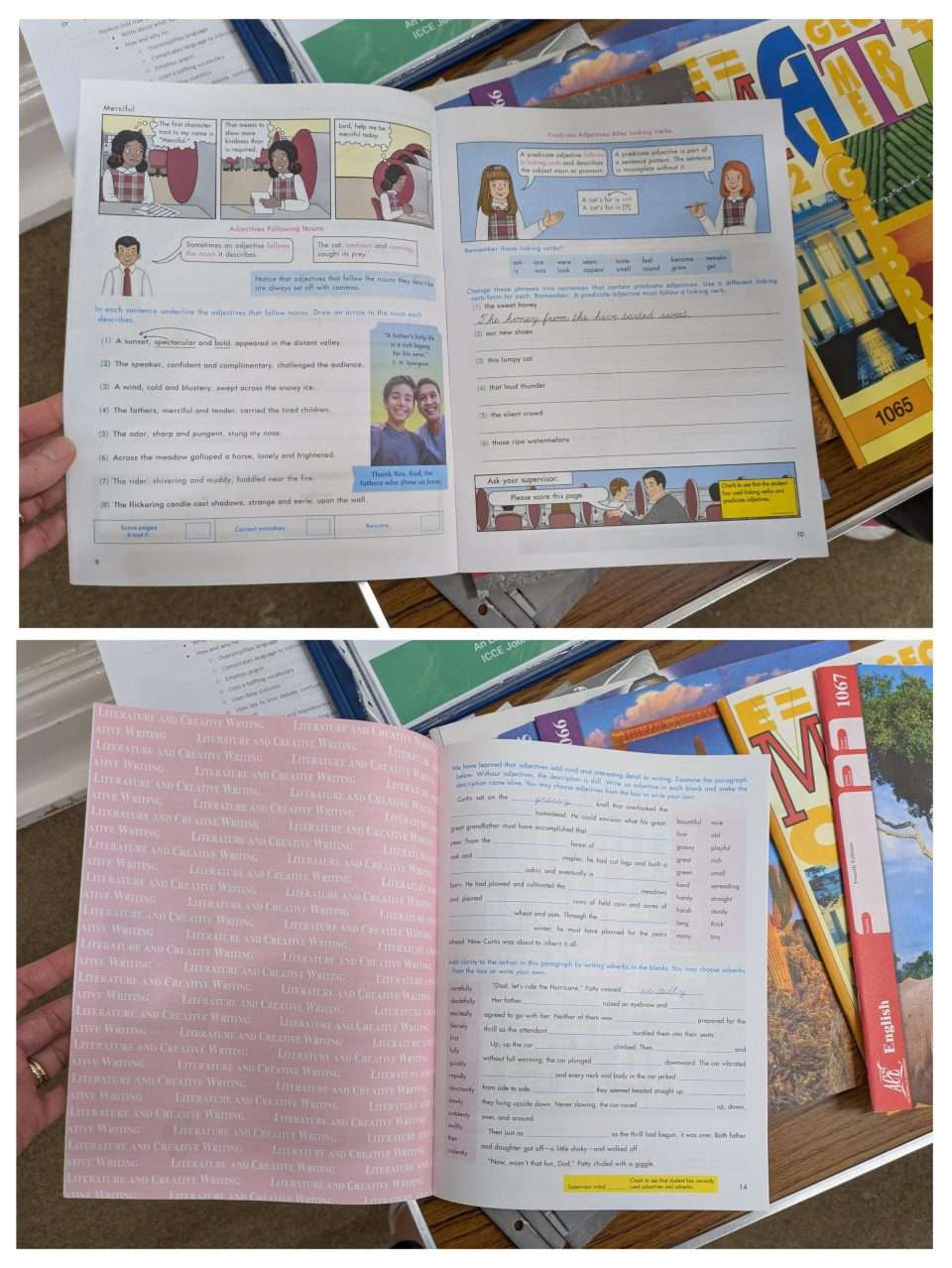
Brave Writer
Brave writer offers a literature-based writing program. You can purchase a one-year bundle, or literature singles that focus on just one read-aloud book. This is great for providing lots of ideas and activities when reading through a particular story. It requires a lot of involvement from the parent, to lead lessons.
Dreaming Spires
https://www.dreamingspireshomelearning.com
Dreaming Spires provide online classes for secondary aged students. The classes are given by experts who have experience in home educating.
IEW
IEW offer a rigorous writing program which incorporates weekly video lessons and writing tasks. These need to be edited, and marked by parents. The teacher of the class is very engaging, but the tasks can feel laborious while students get used to the structure. It can be purchased with Fix it Grammar which includes daily grammar tasks, involving correcting a story.
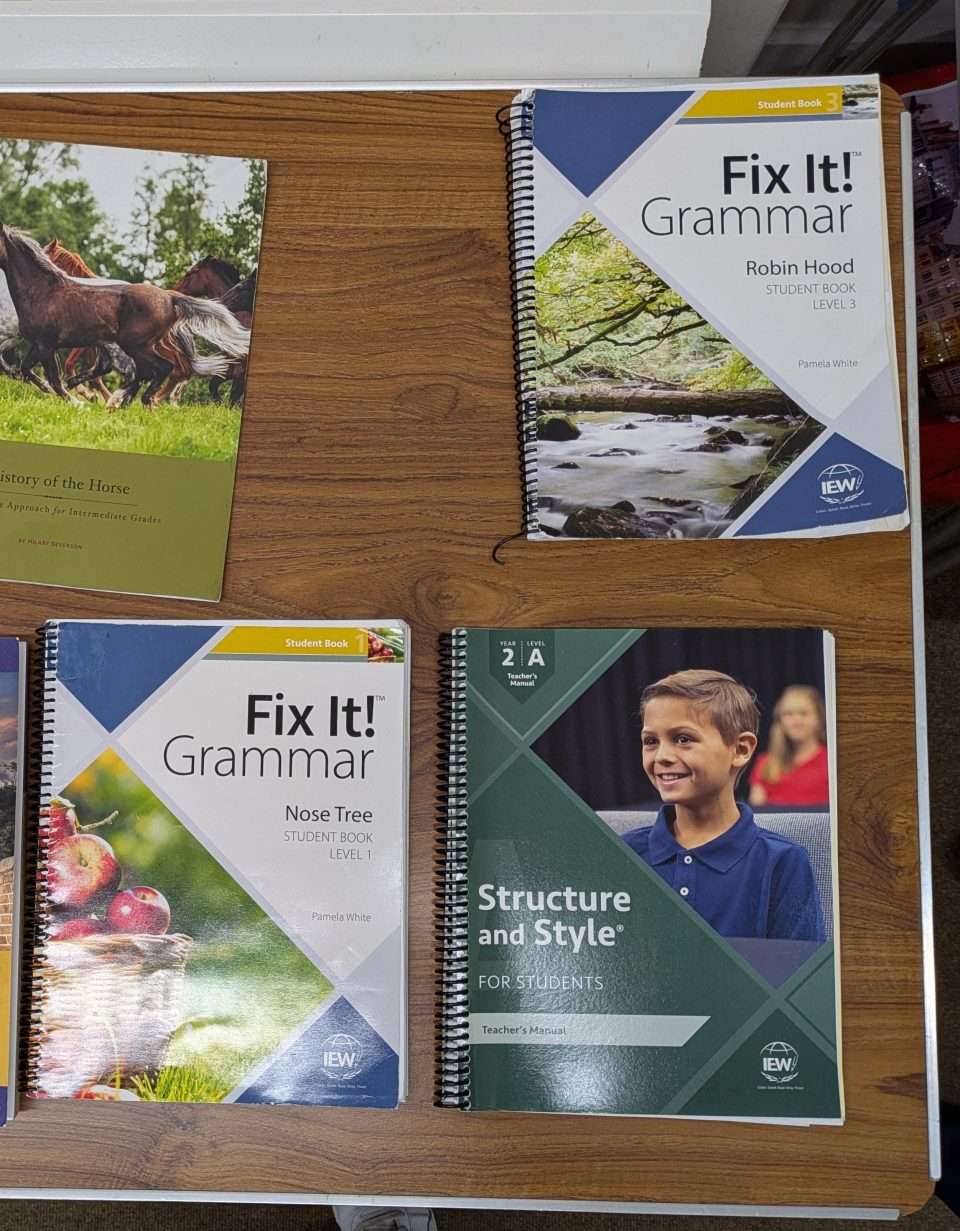
Sonlight
Sonlight provide bundles which cover all subjects for one year. It is an open and go curriculum, with a detailed schedule that requires little preparation on the part of the teacher.
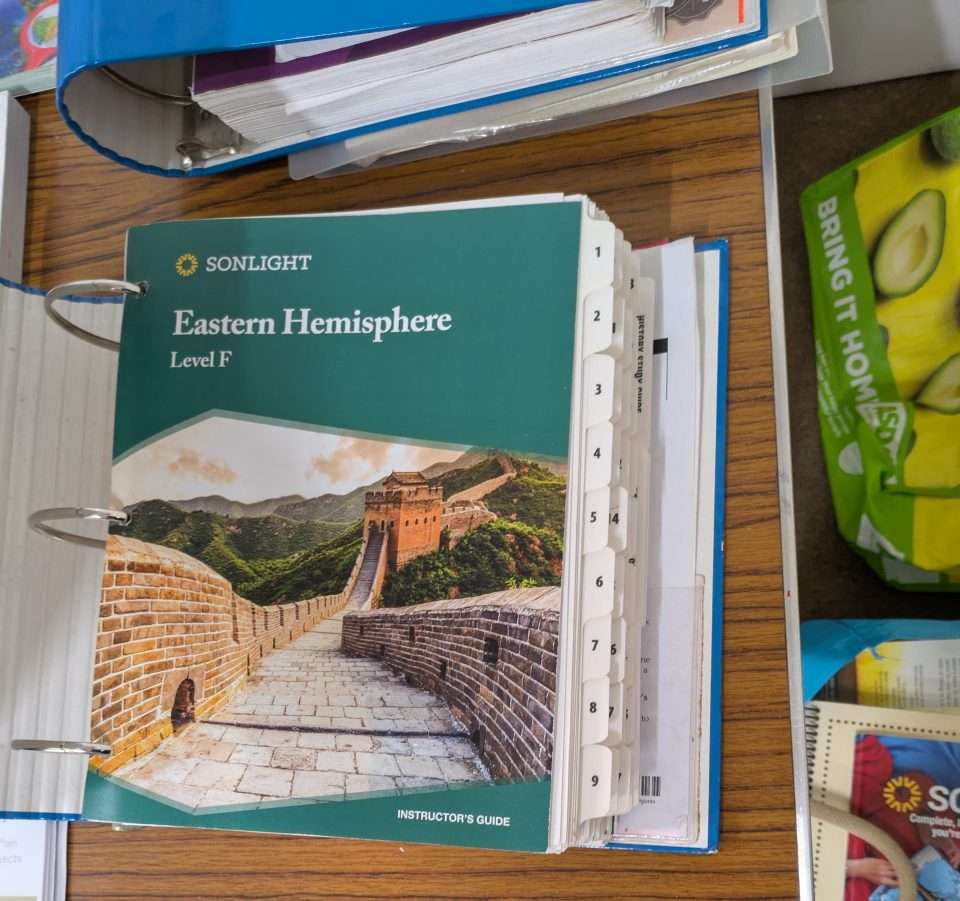
Generations
Generations offer curriculum in a range of subjects, all taught from a Christian perspective. The science curriculum includes reminders to pause and praise God for his creation with songs and prayers. The history curriculum follows the spread of the gospel across continents.
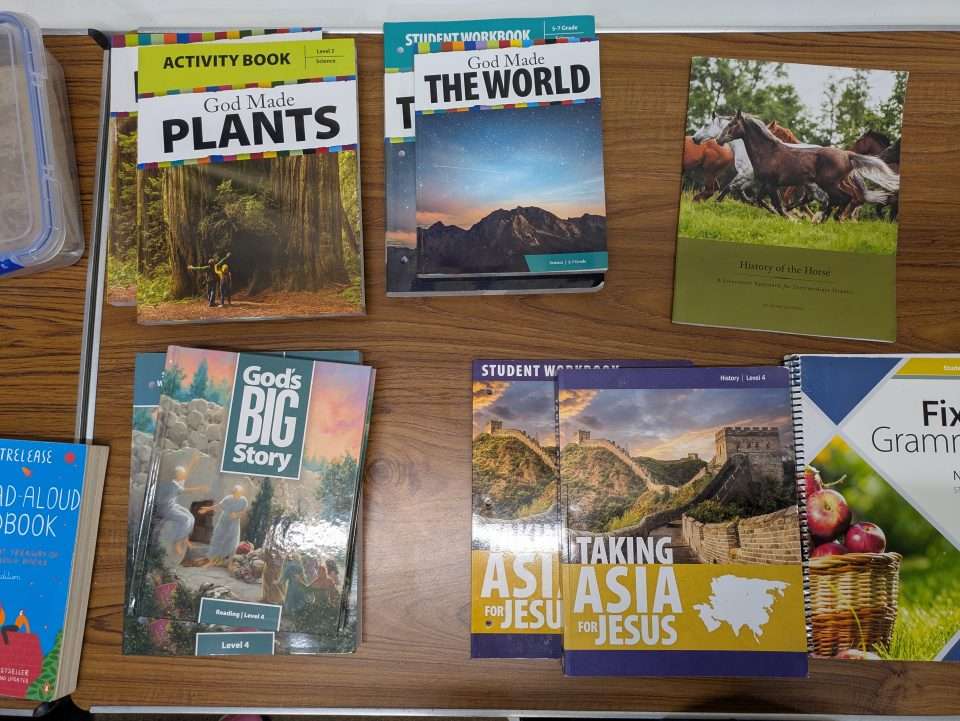
Beowulf Grammar
https://guesthollow.com/store/beowulfs-grammar-workbook/
Beowulf is a printable grammar program that can be used across a variety of ages from 7-12. It incorporates comic strips, cut and stick activities, games, correcting portions of stories and review cards. It can be used as the main spine for the Guest Hollow Language Arts program, which provides a schedule and a list of books and resources to be purchased separately and worked through. The suggested resources are very high quality and have been a joy to use.
White Rose Math
https://whiteroseeducation.com
White Rose offer online video lessons, and worksheets that can either be downloaded and printed, or purchased in a workbook. Subscriptions are heavily discounted through Popart Home Ed https://www.facebook.com/groups/302455799952156/
Books:
How to teach your children Shakespeare, Ken Ludwig
https://www.kenludwig.com/howtoteachyourchildrenshakespeare
This is a book that has been written to get children memorising Shakespeare. The website above has printouts to assist children in doing this. There is a helpful interview with the author on the Read Aloud Revival website, which provides useful suggestions for introducing each play and getting the most out of the book.
https://readaloudrevival.com/introducing-kids-to-shakespeare/
The Read Aloud Handbook, Jim Trelease
This book focusses on the benefits of reading aloud to children. Perhaps the best part of the book is the treasury at the back, full of book recommendations for all different ages and topics.
Modern Miss Mason, Leah Boden
This book looks at Charlotte Mason’s educational philosophy and explores how to practically incorporate it into your home.
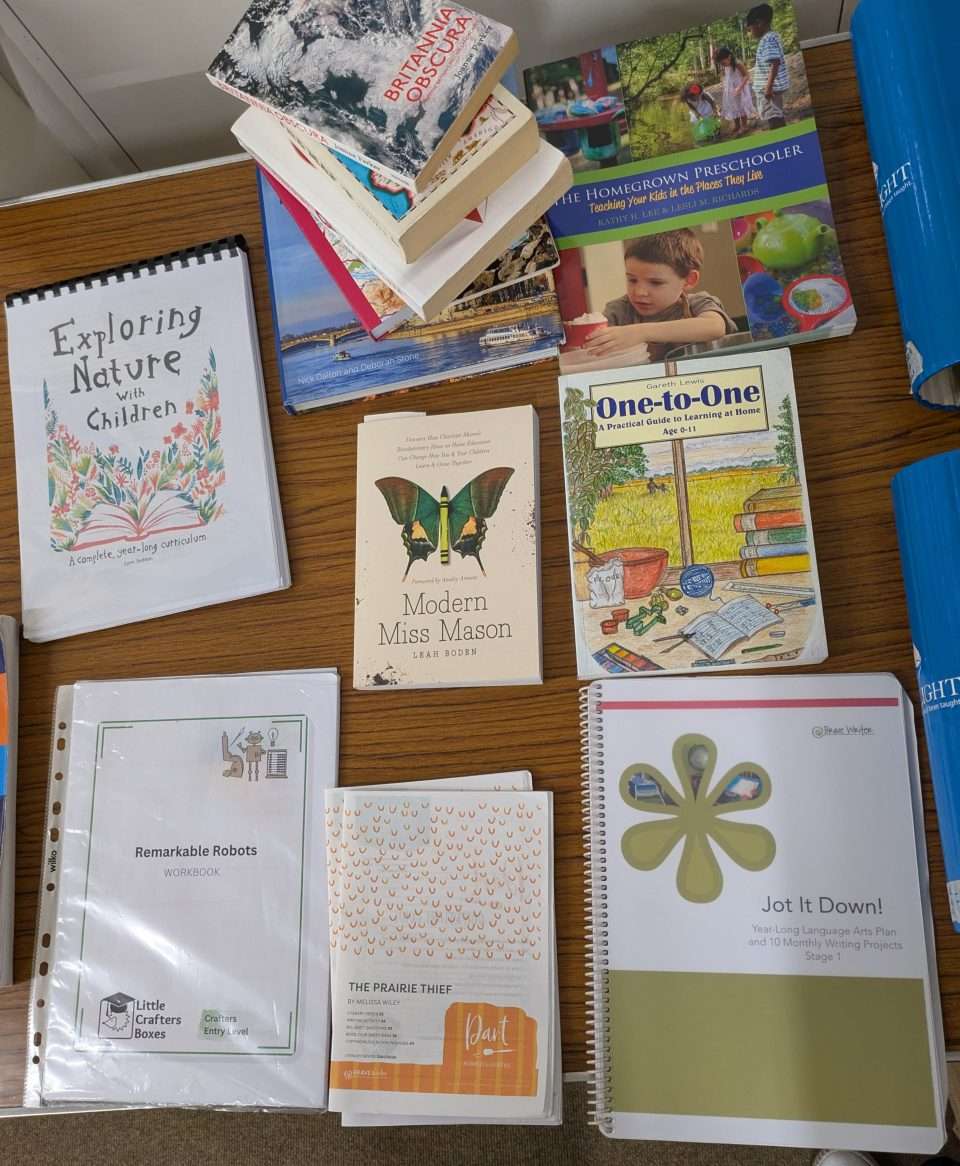
Further information:
If you would like any further information about any of the curriculums, just get in touch. A couple of families who were unable to attend the event, have been using Gather Round (https://gatherroundhomeschool.com/) and Classical Conversations (https://classicalconversations.com/). They have also said they would be happy to arrange an opportunity for anyone interested, to discuss and look through some of the resources.
Bible Study, Exodus 4:1-17:
Signs for Moses
4 Moses answered, “What if they do not believe me or listen to me and say, ‘The Lord did not appear to you’?”
2 Then the Lord said to him, “What is that in your hand?”
“A staff,” he replied.
3 The Lord said, “Throw it on the ground.”
Moses threw it on the ground and it became a snake, and he ran from it. 4 Then the Lord said to him, “Reach out your hand and take it by the tail.” So Moses reached out and took hold of the snake and it turned back into a staff in his hand. 5 “This,” said the Lord, “is so that they may believe that the Lord, the God of their fathers—the God of Abraham, the God of Isaac and the God of Jacob—has appeared to you.”
6 Then the Lord said, “Put your hand inside your cloak.” So Moses put his hand into his cloak, and when he took it out, the skin was leprous[a]—it had become as white as snow.
7 “Now put it back into your cloak,” he said. So Moses put his hand back into his cloak, and when he took it out, it was restored, like the rest of his flesh.
8 Then the Lord said, “If they do not believe you or pay attention to the first sign, they may believe the second. 9 But if they do not believe these two signs or listen to you, take some water from the Nile and pour it on the dry ground. The water you take from the river will become blood on the ground.”
10 Moses said to the Lord, “Pardon your servant, Lord. I have never been eloquent, neither in the past nor since you have spoken to your servant. I am slow of speech and tongue.”
11 The Lord said to him, “Who gave human beings their mouths? Who makes them deaf or mute? Who gives them sight or makes them blind? Is it not I, the Lord? 12 Now go; I will help you speak and will teach you what to say.”
13 But Moses said, “Pardon your servant, Lord. Please send someone else.”
14 Then the Lord’s anger burned against Moses and he said, “What about your brother, Aaron the Levite? I know he can speak well. He is already on his way to meet you, and he will be glad to see you. 15 You shall speak to him and put words in his mouth; I will help both of you speak and will teach you what to do. 16 He will speak to the people for you, and it will be as if he were your mouth and as if you were God to him. 17 But take this staff in your hand so you can perform the signs with it.”
–
Last year, we looked at Exodus 3, where God spokes to Moses from the burning bush and told him to go back to Egypt to free the Israelites. Moses asked ‘Who am I, that I should go?’ and God essentially said, it doesn’t really matter, because I will be with you. Then we looked at the God who would be with him.
Today, I want to look at the second half of that conversation. The reason I’ve stayed with these chapters is because one of the things I have struggled with most when it comes to home educating is doubt. I doubt I’ll be able to equip the children with everything they will need for their future – educationally, socially or spiritually. I question whether I’ll have the strength and stamina to see it through. And I worry that I might ruin them because so often I say and do things I wish I had not.
It is reassuring to know that Moses was full of doubts about his calling too. And I’ve been really encouraged by looking at how God responded to him. God didn’t give up on Moses. He patiently listened to his fears and equipped and provided for him.
Right at the start of Exodus 4 Moses says – ‘what if they do not… listen to me’.
In the chapter before, at verse 18, God said ‘the elders of Israel will listen to you’. So, either Moses has forgotten what God said, or he does not believe him. Probably, all Moses can remember at this point was the rejection he faced from his people, before he fled from Egypt. When people criticise and reject us, it can be very painful, and it can really knock our confidence. It is easy, as Moses does, to focus on that rejection and forget God’s promises. But ultimately, if God is for us, who can be against us? (Romans 8:31)
God isn’t cross that Moses has forgotten his promise, or that he is struggling to believe. He asks, ‘what is that in your hand?’ Moses has a staff, a stick of dead wood. But it isn’t just a stick. In a way, it represents Moses’ strengths. He has been navigating the wilderness, caring for and protecting vulnerable creatures for 40 years. But it also represents his shame. He was a prince of Egypt, and has traded his royal sceptre for a stick.
Then God tells him to take that stick and ‘throw it on the ground’, at which point it becomes a snake. That in itself is an incredible miracle. But why a snake? A snake was the symbol of Wadjet, the Egyptian Goddess of royal authority and protector of Pharoah. So God takes what Moses has to hand, and makes it relevant to the situation, revealing his authority over Pharoah and his God.
We have no idea what the future will be like for our children, but God does. He can take whatever we have in our hands. He can use our skills, and even our weaknesses, to teach and raise our children. And He can ensure that teaching is perfectly relevant for the situations they will face in life. In the words of Schaeffer:
‘“God so used a stick of wood” can be a banner cry for each of us. Though we are limited and weak in talent, physical energy and psychological strength, we are not less than a stick of wood.’
Next God says, ‘put your hand inside your cloak’. Moses puts it in, and it comes out leprous. Then he puts it in again, and it comes out completely healed.
Leprosy was a contagious skin disease. So God showed he is able to give and take away good health. At times we have to grapple with our own ill health, or that of our children. It can mean we are forced to do, seemingly, very little by way of educating our children. But God is the giver of strength. Whatever strength we wake up with each morning, all he asks is that you take that and do your best with it. He will do the rest.
The miracle also shows that God is able to cleanse us of sin. In Moses’ day, leprosy was considered a symbol of sin and God’s judgment. When someone had leprosy, they were deemed unclean and unable to engage in religious ceremonies. The were cast away from society, so the disease did not spread. But God showed, by healing Moses hand, that he is able to purify and cleanse.
He can cleanse our sin and our children’s. In fact, he promises to do so when we follow Jesus. But it is important that we keep following him. Moses had a lot of doubts, but he kept doing everything God asked of him. He threw his stick on the floor, and picked it up. He put his hand in his cloak, as asked, and, ultimately, he did go to Pharoah to deliver God’s message. We may have doubts, but we need to keep following God’s call, in spite of them.
Next, God tells him, ‘if they do not believe these two signs… take some water from the Nile and pour it on the dry ground. The water… will become blood.’
Again, Moses is asked to get something readily available, and God makes it relevant. The Nile was the very life of the Egyptians. It watered crops and animals. So, God showed his sovereignty over all the resources of Egypt. Whatever God calls us to do, he will ensure we have access to the resources we need to do it. Not necessarily the resources we want, or think we need.
When we started our home educating journey, we mostly used free resources, because that’s all we could afford at that time. However, God always provided enough. Since then, I’ve had so many experiences of hitting a wall, and then God putting the right resource in front of us at just the right time.
So, Moses has been given 3 miracles, but still he doubts. He says he’s ‘never been eloquent, neither in the past nor since you [God] have spoken to your servant.’
Interestingly, in Acts 7:22, Moses is described as ‘educated in all the wisdom of the Egyptians and powerful in speech and action.’ It seems at one point he was good at speaking. However, it looks like Moses is still focussed only on his failings.
God responds by reminding him that he is the maker of the mouth. He created the mouth of the most eloquent speaker that ever lived, and he can give Moses the words to speak when he needs them.
Moses also seemed to be implying that whilst he knew God could make him a better speaker, even now, since they’d been speaking, God hadn’t changed anything. God responds to this too. He says he’s not just the giver of gifts, but weaknesses. He makes men mute, deaf and blind. God hadn’t given Moses a sudden supernatural confidence or ability, because he didn’t need it at that time. It might be that he planned to give him this gift at the moment Moses spoke to Pharoah. Or it may be that he was happy for Moses to fumble over his words and appear weak and feeble before Pharoah.
But why does God dish out any weaknesses in the first place? Paul says in 2 Corinthians 12 that ‘God’s power is made perfect in weakness’. I often wish I could feel more confident, but, if I did, I would depend on God far less. When God’s plans are achieved, despite our weakness, God is praised, instead of man, and things are as they should be. Thankfully, God’s kingdom doesn’t rely on human skill or endeavour, it relies on Him.
Finally, when Moses has come to the end of his excuses, he simply says ‘Please send someone else.’ He doesn’t want the weight of responsibility to fall on him. Have you felt that way? I know I have.
This is the first time we’re told ‘the Lords anger burned against Moses’ – when Moses exposes his unwillingness.
However, even in his anger, God still does not give up on Moses. Rather, He says ‘What about your brother, Aaron… He is already on his way to meet you… He will speak to the people for you.’ Before Moses asked, God knew what he needed and had already planned for it. Aaron must have started his journey before God even began speaking to Moses.
Similarly, God has our children’s education all planned out. Before we even start looking for the next curriculum, God knows what we will use. Before we start planning our next school year, he knows how it will pan out. Keep trusting God and He will equip you and provide you with everything you need to serve Him faithfully.
….
After this we had a time of discussion, sharing testimony and praying for each other. One of the verses that was mentioned, and has been a source of encouragement for a few of us, over the final weeks of term was Psalm 23:6 ‘surely your goodness and love will follow me all the days of my life.’
If you have gotten this far, thank you so much for taking the time to read this. I pray you will be blessed with rest and refreshment over the summer, and that you will be guided to the right resources to use with your family over the next academic year.